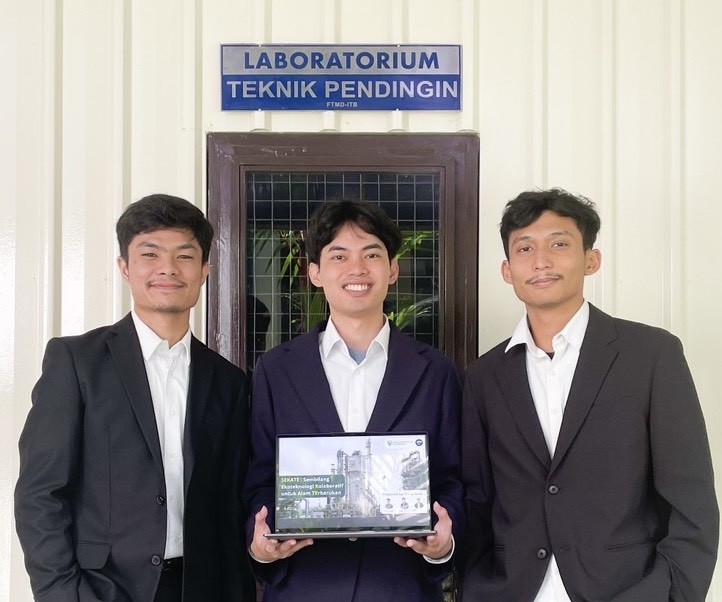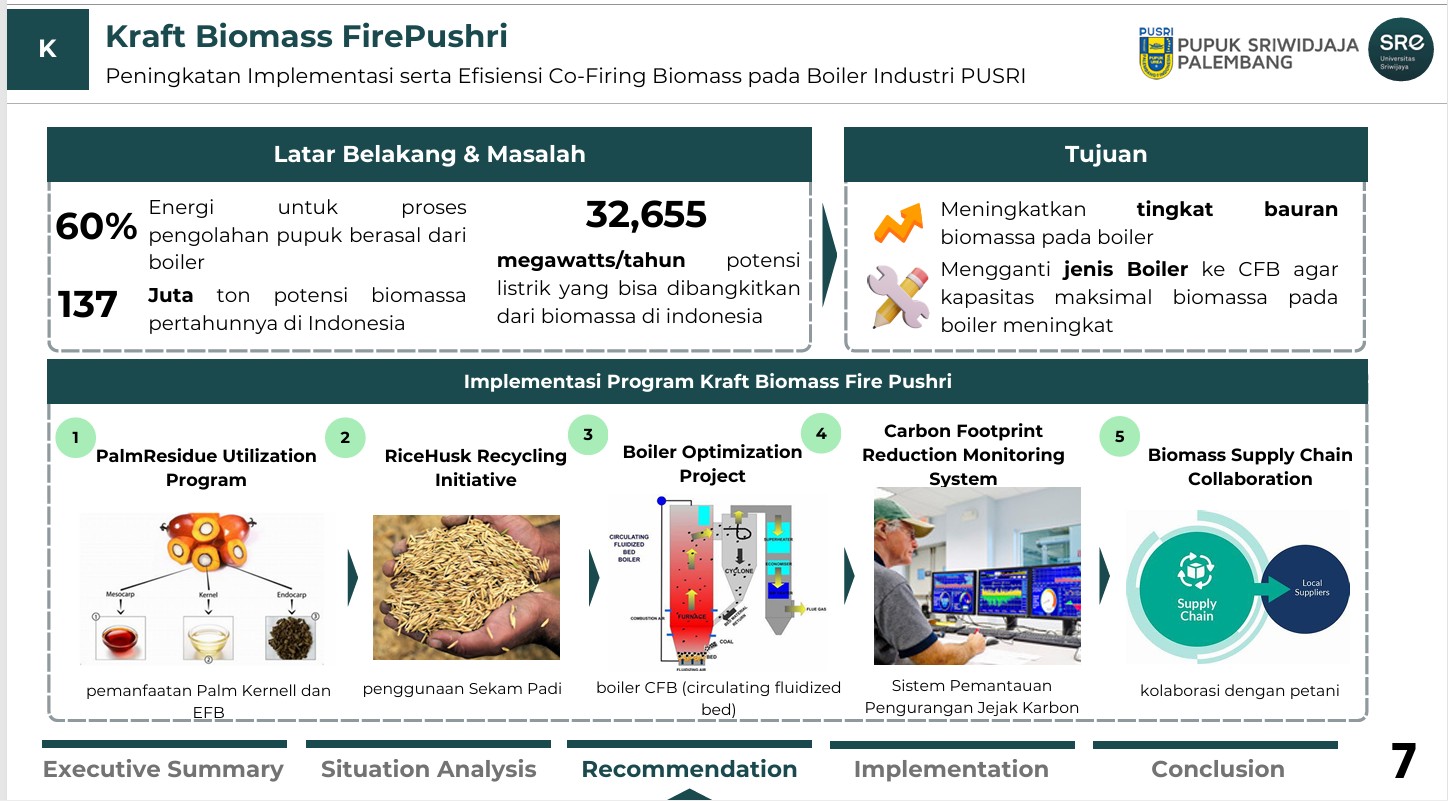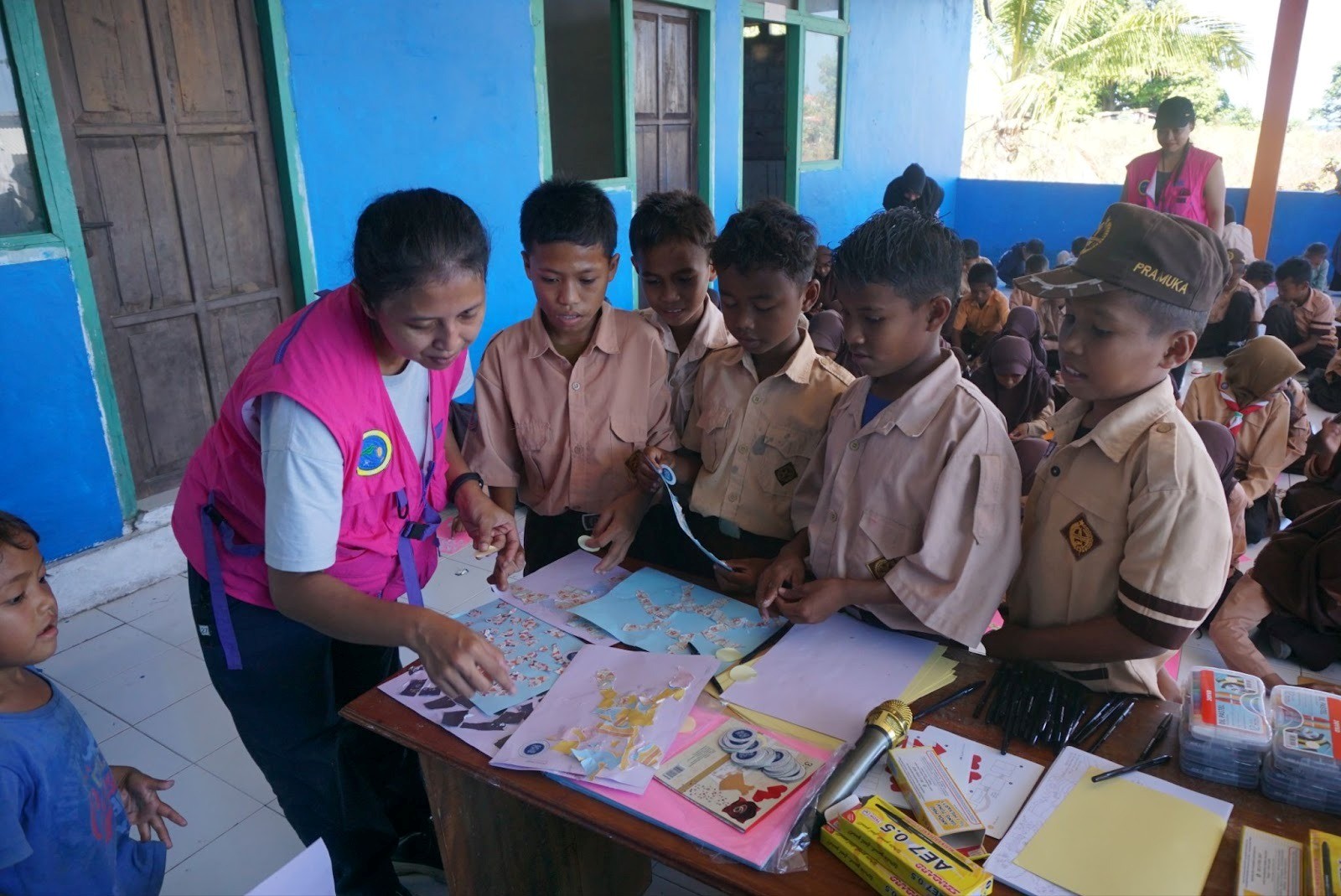ITB’s “Bang Jono” Team Wins First Place in National Business Case Competition, Proposes Biomass Technology for Green Fertilizer Industry
By Syabina Er Said - Mahasiswa Teknik Dirgantara, 2020
Editor M. Naufal Hafizh, S.S.

BANDUNG, itb.ac.id — A concrete step toward a sustainable energy future has come from three students of the Faculty of Mechanical and Aerospace Engineering (FMAE) at the Bandung Institute of Technology (ITB). The Bang Jono Team, consisting of Farraz Alif Hernando (Mechanical Engineering 2022), Muhamad Abir Nuchiyah (Aerospace Engineering 2022), and Riza Azzam Burhani (Mechanical Engineering 2022), emerged as the first-place winner in the prestigious SINERGY 2025 Business Case Competition organized by Sriwijaya University, successfully addressing sustainability challenges faced by Pusri and Pertamina.
This competition is part of the Sustainable and Renewable Energy (SRE) UNSRI 2025 event series, centered around the theme Local Energy, Global Impact: Optimizing Indonesia's Renewable Energy Potential to Support World Sustainability. The event aims to promote the optimal utilization of renewable energy to support the sustainability of national industries.
The Business Case Competition serves as a platform for students across Indonesia to devise concrete strategies for companies and the renewable energy sector. The focus is on how major corporations can transition to green energy while remaining globally competitive. In a subtheme that examined green energy within the fertilizer industry, participants were challenged to design innovative and sustainable business strategies for companies like Pusri, carefully considering technological, economic, and environmental aspects.
The Bang Jono Team stood out for its integrated, realistic solution that simultaneously addressed the challenges of energy transition across technological, economic, and social dimensions.
Presenting a solution titled SEKATE (Sembilang Ekoteknologi Kolaboratif untuk Alam Terbarukan), the team offered a comprehensive approach to facilitate the green energy transition in the fertilizer industry for Pusri. SEKATE comprises six initiatives, one of which has drawn significant attention: Kraft Biomass FirePushri. This program involves the co-firing of biomass using agricultural waste such as rice husks and palm oil residues. This innovation enables Pusri to significantly reduce carbon emissions by utilizing Circulating Fluidized Bed (CFB) boilers, which can optimize biomass combustion by up to 30%. The technology is further supported by a real-time carbon footprint monitoring system and collaboration with local farmers to supply raw materials, creating an environmentally friendly business model that also empowers village economies.

SEKATE’s scope does not end there. It also includes strategies for large-scale solar power plant construction (Solar Boost Pusri), plant revitalization with efficient technology (Eco Revive), development of green ammonia-based fertilizers (TechGrow H2), and the establishment of a cross-sectoral green energy research partnership center (EcoLoop). Overall, SEKATE is projected to reduce CO? emissions by over 1.9 million tons by 2030 while generating positive economic impact with a positive NPV and operational cost savings of up to IDR 50.15 trillion over five years.
“We hope that more renewable energy technologies will continue to be developed and implemented across Indonesia. The future of the industry cannot rely solely on efficiency—it must be aligned with sustainability,” shared Abir and his team during an interview at FMAE on Monday, April 28, 2025.
Alif further emphasized that a collaborative approach, bridging technology, communities, and industries, is key to achieving a just and comprehensive energy transition.
The Bang Jono Team’s success illustrates how ITB students are capable of crafting strategic and applicable solutions to address the significant national energy challenges, while simultaneously reinforcing ITB’s position as a leading hub of innovation for sustainability.
Reporter: Syabina Er Said (Aerospace Engineering, 2020)
Translator: Malika Fatima Lawe (Microbiology, 2022)

.jpg)
.jpg)


.jpg)

